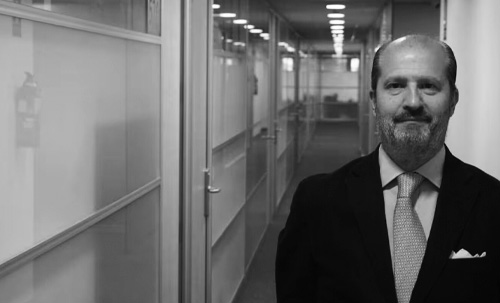At Gala Capital, we are constantly scanning the horizon for opportunities that can create long-term value for our investors. Earlier this year, we took a close look at a potential acquisition that perfectly fit that mandate: Telefónica del Perú, the Peruvian subsidiary of Telefónica S.A.
While we ultimately chose not to proceed with the purchase, the process itself offered a window into the complexities–and opportunities–of investing in regulated markets across Latin America. It also reinforced one of our core convictions: disciplined exploration is just as valuable as execution.
Telefónica S.A. has been steadily unwinding its exposure to several Latin American markets. As part of that strategy, the company recently sold its operations in Argentina, Peru, and Uruguay—reducing its consolidated debt by roughly €1.5 billion, according to reporting from Capital Madrid.
The sale of Telefónica del Perú drew particular attention. The unit was sold for a symbolic price of about €900,000, but the buyer, Argentina-based Integra Capital, took on more than €1.2 billion in debt and related liabilities. What looked, at first glance, like a modest transaction was in fact a highly leveraged, complex restructuring.
Our Exploratory Role
At Gala Capital, our team conducted an in-depth analysis of the Peruvian asset as part of our investment pipeline. We viewed it as a textbook case for our strategy: underperforming but essential infrastructure, in a market poised for long-term recovery. The due-diligence process gave us valuable insights:
• Sector complexity. Peru’s telecom market faces intense competition, low pricing, and capital-intensive infrastructure needs, 5G rollout, fiber expansion, and regulatory compliance.
• Financial structure. The acquisition price was only the visible layer; the hidden weight was in debt and contingent liabilities, including ongoing litigation and tax disputes with local authorities.
• Strategic alignment. Transactions like this are central to Gala Capital’s philosophy: investing in transformation, in markets others overlook, and in assets that require active management to unlock value.
• Institutional learning. The exercise strengthened our internal capabilities in regulated-market due diligence and risk structuring for Latin America.
The deal, in the end, became a lesson in contrasts. On paper, the price tag was almost negligible –less than a million euros for a company with nationwide infrastructure. But behind that modest figure lay the real story: billions in debt, years of litigation, and a tangle of regulatory obligations. It was a reminder that in distressed assets, the price is never the cost. What you inherit isn’t just a balance sheet; it’s the history of the business, the liabilities it carries, and the expectations of every regulator who has ever touched it.
In Peru, that regulatory weight was more than a detail, it was the landscape itself. Tariff caps, service requirements, and capital expenditure mandates can shape an investment more profoundly than GDP growth ever could. In such markets, you don’t just buy a company; you buy into a system. Understanding that system, and knowing where the limits are, is half the work.
Still, the most valuable takeaway wasn’t financial. For us, exploration itself has value. Running the numbers, speaking with advisors, engaging with policymakers, each step refined our perspective and broadened our reach. Not signing the deal didn’t mean we failed; it meant we learned. It positioned Gala Capital as a credible partner for the next opportunity, one with a deeper understanding of how to navigate regulated terrain.
And finally, there was the quiet power of restraint. Walking away is easy to frame as inaction, but in investment, discipline is strategy. Saying no for the right reasons, at the right time, can be the most decisive act of all.
What It Means for Our Investors
For those who place their trust in Gala Capital, this episode demonstrates our commitment to intellectual rigor and prudence:
• We investigate deeply, even when the process doesn’t lead to a headline transaction.
• We quantify risk and opportunity with equal precision.
• We prioritize long-term credibility over short-term activity.
Every exploration, whether it leads to a deal or not, sharpens our ability to navigate complex global markets –and to deliver sustainable value when the right opportunity emerges.
The potential acquisition of Telefónica del Perú was, in many ways, a masterclass in modern investing: identifying opportunity in complexity, testing hypotheses through real-world analysis, and knowing when to stop.
We didn’t buy the asset, but we gained something just as valuable: deeper insight, stronger processes, and sharper focus. In a world where the best investments often hide in plain sight, that discipline is our competitive edge.




